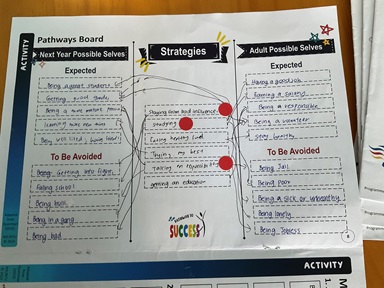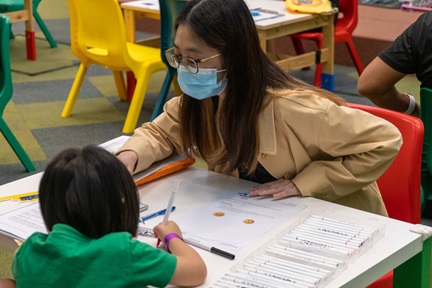Empowering Learners with Metacognitive Skills for the Future
OER 02/21 LNH - Paving the Way Towards Lifewide and Lifelong Learning: Exploring and Fostering Metacognition for Learning and Transfer
Project Team
Lead PI, PI of Sub-study 2: Associate Professor Lee Ngan Hoe, MME & TEUP, NIE
Co-Lead PI, PI of Sub-study 4: Dr Imelda Santos Caleon, SoLEC, NIE
PI of Sub-study 1: Dr. Melvin Chan, CRPP & SCCCE, NIE
PI of Sub-study 3: Associate Professor Teo Wei Peng, PESS & SoLEC, NIE
PI of Sub-study 5: Dr Dawn Ng Kit Ee, MME & TEUP, NIE
Co-PI: Dr Tay Lee Yong, Beacon Primary School
Co-PI: Dr Sally Ann Jones, ELL, NIE
Co-PI: Mr. Cedric Leong, ELIS, MOE
Co-PI: Mr. Tan Liang Soon, AST, MOE
Co-PI: Mdm Low Leng, AST, MOE
Co-PI: Dr Loh Mei Yoke, CPDD, MOE
Co-PI: Mr Sim Joo Jin, CPDD, MOE
Co-PI: Miss Gayatri Balakrishnan, CPDD, MOE
Co-PI: Professor Wu Long Kai, Central China Normal University
Collaborators:
Dr Johannis Auri bin Abdul Aziz, NIE
Mr Melvin Chng, 21CC Office, MOE
Mr Raymond Huang, PARB, MOE
Professor Michael Hast, IU International University of Applied Sciences
Dr Chong Sau Kew, National University of Singapore
Dr Fiona Cheam, PSB, MOE
Miss Ng May Gay, SDCD, MOE
Ms Serene Lai, ELIS, MOE
Professor Balázs Zoltan Gulyás, NTU
Assistant Professor Patricia Chen, University of Texas at Austin
Project Description
At the end of the research, a knowledge base of local students’ metacognition processes will be built to inform students, teachers, and researchers of the strategies that will enhance students’ metacognition.
Project Implications
The research seeks to not only develop a comprehensive knowledge base on local students’ metacognition, but also examines the contextual factors that influence its nature. The intervention and professional development programmes that follow aims to help students develop metacognitive awareness and develop their ability to apply various metacognitive strategies and support teachers to develop better and holistic understanding of metacognitive strategies and apply such enhanced understanding in teaching.
Implications for schools and policy makers:
- Access to contextualised resources, which can be utilised in crafting an “organic” intervention programmes for fostering metacognition;
- Understand the relevant practices of highly metacognitive students and teachers who are active practitioners of metacognitive teaching strategies;
- Identify elements that promote or impede students’ utilisation of metacognitive strategies in making critical decisions regarding what needs to be improved, maintained, or toned down for a more metacognition-nurturing school milieu.
Resources
More details of the project can be found at: https://www.ntu.edu.sg/nie/science-of-learning-in-education-centre/metacogntion
Selected Talks:
Caleon, I. S., Huang, X., Wong, Y. S. & Teo, W. P. (2024, May 30). Development and evaluation of the Metacognition Intervention Programme: A Pilot Study. Paper presented to the Redesigning Pedagogy Conference 2024, Singapore.
Lee, N. H., Lee, J., Thaslim, B, & Liu, M. (2024, May 30). Examining metacognitive teaching strategies and practices for learning and transfer in Singapore classrooms. In Lee N.H. (chair), Metacognition for learning and transfer in Singapore schools [Symposium]. Redesigning Pedagogy International Conference, Singapore.
Ng, K. E. D., Tan, M., Furtado, M., & Liu, M. (2024, June 30). Professional Development programme on metacognition: Walking the journey with teachers. In Lee N.H. (chair), Metacognition for learning and transfer in Singapore schools [Symposium]. Redesigning Pedagogy International Conference, Singapore.
Tay, L. Y., (2023, July 26). Examining students’ metacognition and teachers’ metacognitive teaching practices and strategies. [Seminar]. Science of Learning in Education Series. Office of Education Research, Science of Learning, National Institute of Education, Singapore.






.tmb-listing.jpg?Culture=en&sfvrsn=b0306905_1)